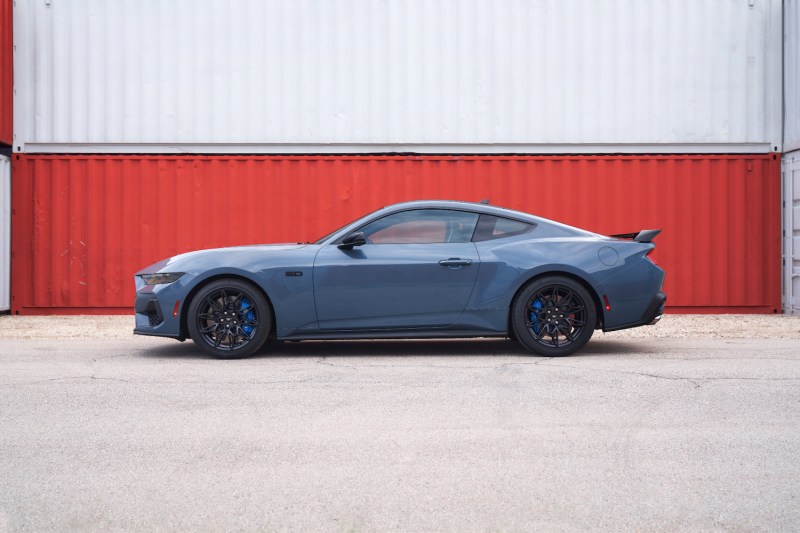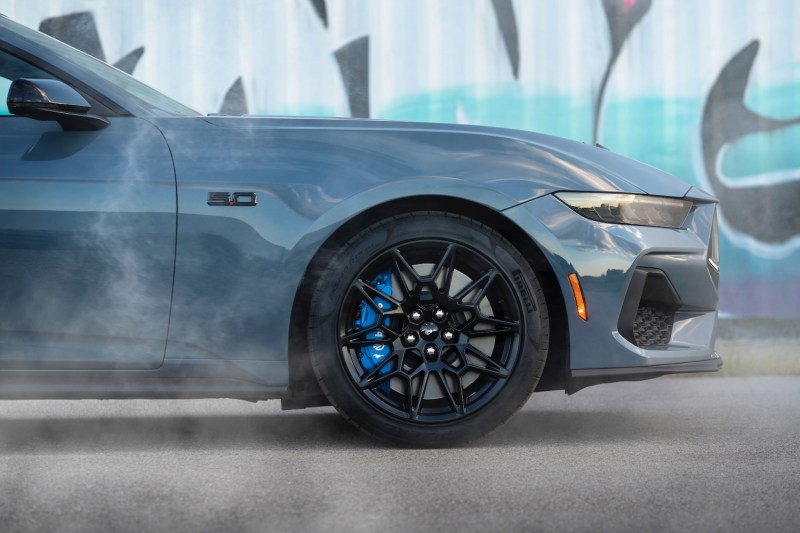While the Ford Mustang has always appealed to consumers because of its retro styling and muscular performance, the pony car has held a special place in the heart of enthusiasts because of its tunability. Don’t like how Ford sells the vehicle from the factory? You can always find more performance elsewhere through one of the various aftermarket tuners. Unfortunately, the recently redesigned seven-gen Mustang arrives with new tech that’s going to make it much more difficult for tuners to extract more power from the pony car’s engine.
The 2024 Mustang comes with Ford’s new Fully-Networked Vehicle (FNV) electrical architecture. This means the new Mustang has over-the-air software capability, as well as new cybersecurity measures that are meant to keep hackers out. Keeping meddling hands out is one thing, but Ford’s FNV architecture will also make it difficult for tuning companies to get more out of the Mustang’s engines through engine tunes.

Ford Authority spoke with Mustang Chief Engineer Ed Krenz who told the outlet that the seventh-gen Mustang would be “much more difficult” for third parties to tune. In an effort to keep users’ data safe, Ford’s engineers ensured that the Mustang’s entire stack was encrypted, including the car’s ECU. If the system recognizes a “break in authentication, it will shut it down – or shut down components of the vehicle,” claims the outlet. While owners will be able to modify the engine, tuning it will prove to be far more difficult and without a tune, you won’t be getting the full potential of the modification.
There’s still some hope for owners who are interested in getting more performance out of their Mustangs. The outlet claims that the automaker is open to the idea of collaborating with third-party tuners to allow them to tune the pony car. This also gives Ford an avenue to offer its own performance packages for consumers to buy via Ford Performance. Shelby and Roush seem like obvious partners for Ford.

If a red flag is going off in your mind after hearing about cybersecurity measures that lock tuners out of a vehicle’s ECU, you’re not alone. With cars becoming more tech-forward, more automakers have introduced similar security measures. Chevrolet did something similar with the new C8 Corvette, as the American sports car utilizes General Motors’ Global B electric architecture that’s also encrypted.
Automotive security has played a secondary role behind new technology for automakers. Over the past few years, videos and reports have shown how easy it is for hackers to commandeer steering and braking systems on vehicles wirelessly. While over-the-air software updates bring vehicles into the modern era, they also open the door to more advanced hacking attempts that can target more prominent aspects of vehicles. Encryption systems like the one in the 2024 Mustang are sure to become more commonplace.
Automakers are going to have to find a way to allow for some level of customization, because tuning a car, especially a car that’s as iconic and well-loved as the Mustang, is something that’s inherently a part of American car ownership.



